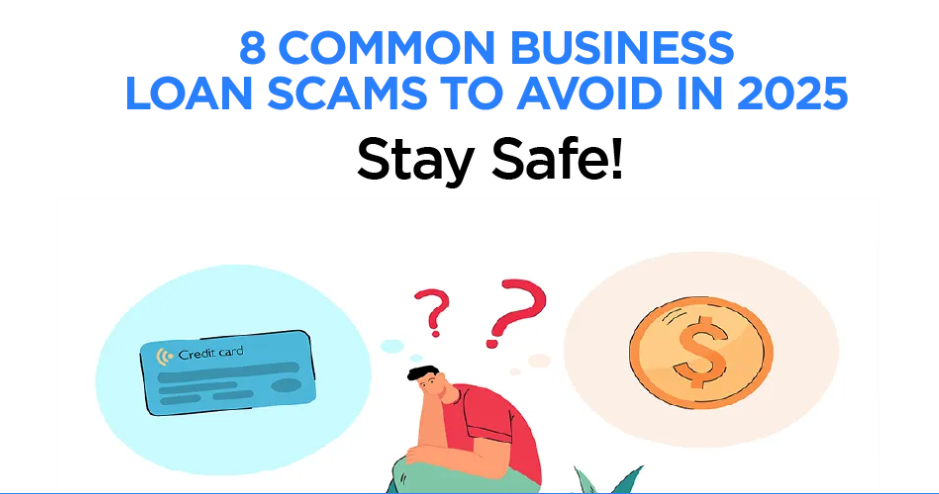Loan Scams to Watch Out for in 2025
In a world where getting a loan is easier than ever thanks to online applications and instant approvals scammers are also getting smarter. They know people need fast cash and are willing to take shortcuts, making 2025 a ripe year for new and sophisticated loan scams.
Whether you’re looking for a personal loan, business financing, or debt consolidation, here are the red flags and common scams to watch out for.
1. Upfront Fee Scams
How it works:
A fake lender offers guaranteed approval no matter your credit score but asks for an “application fee” or “processing charge” before releasing the loan. Once you pay, they vanish.
Red flag:
Legitimate lenders never ask for payment before disbursing funds.
2. Phishing & Fake Loan Websites
How it works:
Scammers create professional-looking websites that mimic real lenders. They collect your personal and financial data through fake application forms, then steal your identity or drain your accounts.
Red flag:
The website has no secure “https://” connection, uses free email domains, or has vague contact information.
3. Debt Relief Loan Scams
How it works:
Fraudsters claim they can roll your debts into one low-payment loan but require you to make “trial payments” to them while they “negotiate.” The negotiation never happens.
Red flag:
They tell you to stop paying your creditors directly.
4. Loan Guarantee Scams
How it works:
You’re promised loan approval regardless of income or credit—guaranteed. To “unlock” the loan, they ask for insurance or collateral in cash form.
Red flag:
Any lender making absolute guarantees without checking your finances is suspicious.
5. Social Media Loan Traps
How it works:
Scammers advertise quick loans on Instagram, Facebook, or TikTok. You DM them, share your banking details, and either lose your money or get trapped in a cycle of fees.
Red flag:
Legitimate lenders don’t conduct full loan transactions entirely over social media DMs.
6. Cryptocurrency Loan Scams
How it works:
In 2025, more scammers are asking for loan repayments or fees in crypto. Since crypto transactions are hard to reverse, once you send it, it’s gone.
Red flag:
Any lender that insists on crypto payments for a traditional loan is suspicious.
How to Protect Yourself
-
Verify the lender’s license in your state or country.
-
Check reviews on independent platforms, not just their own site.
-
Read the fine print before signing anything.
-
Never pay fees upfront.
-
Trust your gut if it sounds too good to be true, it probably is.
Final Thoughts on Loan Scams to Watch Out for in 2025
Scammers in 2025 are using more convincing tactics than ever, but the fundamentals haven’t changed—legitimate lenders follow clear regulations, don’t demand upfront payments, and communicate transparently. Stay vigilant, do your research, and you’ll keep your money and identity safe.


